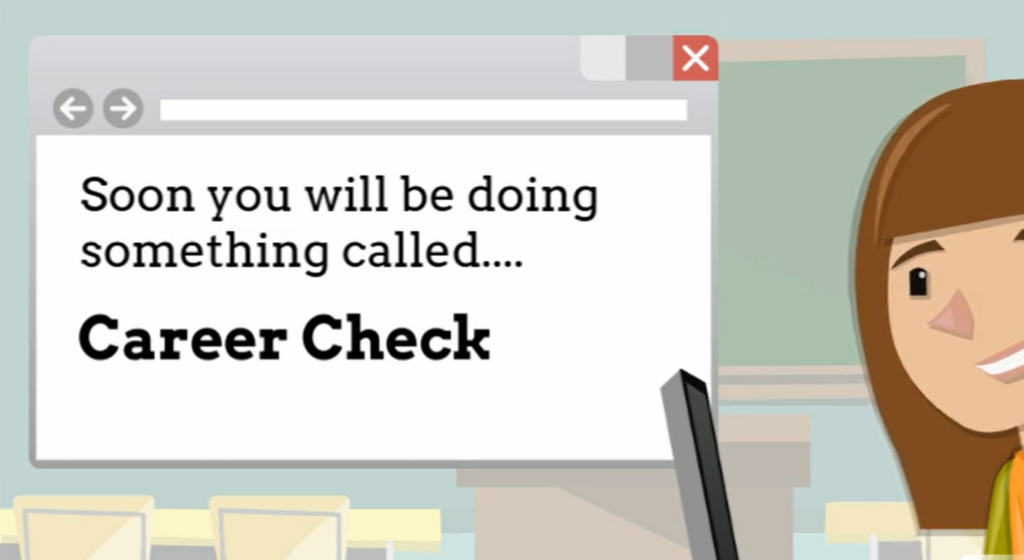Career Check
Choosing a career path is one of the most important decisions one can make in their lifetime. It is a decision that will have long-term implications on one’s life, including financial stability, personal fulfillment, and overall happiness.

However, with so many options available, it can be challenging to determine the right career path. To make an informed decision, it is essential to conduct a career check that will help you identify your skills, interests, values, and personality traits.
Why You Need Career Check
A career check is essential for anyone who wants to make informed decisions about their career path. Here are some reasons why you need a career check:
Identify your strengths and weaknesses: A career check helps you identify your skills, interests, values, and personality traits. This information can help you determine your strengths and weaknesses and determine what types of jobs and careers are the best fit for you.
Narrow down career options: With so many career options available, it can be overwhelming to choose the right one. A career check helps you narrow down your options and identify the careers that align with your skills, interests, and values.
Increase job satisfaction: Choosing a career that aligns with your skills, interests, and values is crucial to job satisfaction. A career check helps you identify the types of jobs and work environments that will bring you fulfillment and happiness.
Improve job performance: When you choose a career that aligns with your skills and interests, you are more likely to perform well and excel in your job. This can lead to career advancement, promotions, and increased job satisfaction.
Avoid career burnout: Choosing a career that does not align with your skills, interests, and values can lead to burnout and dissatisfaction. A career check helps you avoid this by identifying the types of jobs and work environments that will be a good fit for you.
A career check is an essential tool for anyone who wants to make informed decisions about their career path. It helps you identify your strengths and weaknesses, narrow down career options, increase job satisfaction, improve job performance, and avoid career burnout.
When To Do Career Check
It’s a good idea to do a career check at different stages of your life, depending on your current situation and needs. Here are some examples of when you might want to do a career check:
During high school: As you approach graduation and start thinking about college or entering the workforce, a career check can help you identify the types of jobs and careers that align with your interests, skills, and values.
After college/university: If you’re a recent graduate entering the job market, a career check can help you determine which job roles and industries are a good fit for you. This is important if you intend to be happy after taking a job.
When changing careers: If you’re considering a career change, a career check can help you identify the types of jobs and industries that align with your current skills, interests, and values. You need to do a career check before you choose the career option you want to change to. Read more about career change here.
During a mid-career crisis: If you’re feeling stuck or unfulfilled in your current job, a career check can help you identify the underlying issues and determine if a career change is necessary. You must do this objectively.
When seeking career advancement: If you’re looking to advance your career, a career check can help you identify the skills and experience you need to acquire and determine the types of job roles and industries that offer opportunities for growth.
A career check can be helpful at different stages of your life and career. It can help you identify the right career path, determine if a career change is necessary, and ensure that you’re on track to achieve your career goals.
Steps To Career Check
Skills Assessment: The first step in conducting a career check is to identify your skills. Skills are abilities or competencies that you possess, which can be acquired through education, training, or experience. There are two types of skills: hard and soft.
Hard skills are technical or specific skills required for a particular job, such as programming, accounting, or project management. You must be able to assess which ones you have and to what degree you have them.
Soft skills are interpersonal or people skills, such as communication, teamwork, and problem-solving. Make a list of the soft skills that you have including those yu have that you don’t use and the level of your proficiency.
To identify your skills, ask yourself what you enjoy doing, what you are good at, and what comes naturally to you. You can also take a skills assessment test or speak to a career counselor for guidance.
Interest Inventory: The second step in conducting a career check is to identify your interests. Interests are the things you enjoy doing or find fulfilling. They can be hobbies, passions, or activities that you find engaging.
To identify your interests, ask yourself what you enjoy doing in your free time, what topics you like to read about, or what activities you find fulfilling. You can also take an interest inventory test or speak to a career counselor for guidance.
Values Clarification: The third step in conducting a career check is to identify your values. Values are beliefs or principles that guide your behavior and decision-making. They are the things that are most important to you in life, such as family, freedom, or creativity.
To identify your values, ask yourself what motivates you, what makes you happy, or what you would be willing to sacrifice for. You can also take a values clarification test or speak to a career counselor for guidance.
Personality Assessment: The fourth step in conducting a career check is to identify your personality traits. Personality traits are the characteristics that make up your unique personalities, such as introversion or extroversion, openness or conscientiousness, and emotional stability or neuroticism.
To identify your personality traits, take a personality assessment test or speak to a career counselor for guidance. Understanding your personality traits can help you identify the types of work environments or job roles that will suit you best.
Career Exploration: Once you have identified your skills, interests, values, and personality traits, the next step is to explore potential career paths that align with your profile. Usually, there are several career paths that will align with you but you need to consider all that you can find and understand their uniqueness.
Conduct research on different industries, job roles, and companies to identify the ones that align with your profile. You must research each career option, know the experience of those currently there, and impact of such career on their lives. With this you can know if you will be able to go in that direction.
You can also speak to professionals in the fields you are interested in, attend career fairs or events, or shadow professionals to gain insights into the day-to-day responsibilities of different job roles.
Conclusion
Conducting a career check is a critical step in choosing the right career path. It allows you to identify your skills, interests, values, and personality traits, which can help you narrow down potential career paths and make informed decisions. Remember that choosing a career is a journey, and it is okay to change paths or pivot as your interests or goals change. With the right mindset and tools, you can find a career that brings you fulfillment, happiness, and success. If you need to a career check section or you have a group of people that needs one, send us an email admin@careeradvice.com.ng
Do you like the article? Please comment, and share with loved ones. You can as well buy me a drink through this link. You can read more about careers here.




Keep it up!
Thank you